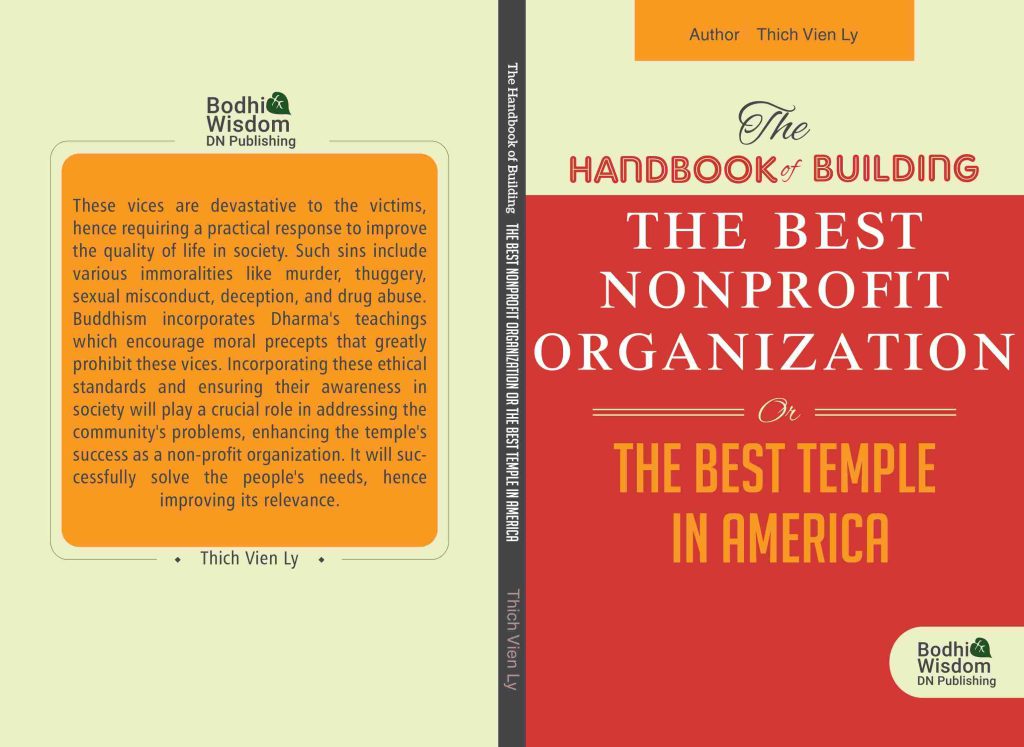INTRODUCTION
Non-profit Organizations play a crucial role in enhancing the well-being of society. Tury (2021) describes Non-profi t Organizations as institutions dedicated to a specifi c cause that signifi cantly impacts the community rather than profits. The primary role of Non-profit Organizations is to serve society and not to accumulate profits. According to Tury, over 1.4 million registered Non-profi t Organizations in the United States contribute about $887.3 billion to the United States economy. For instance, Tury illustrates that about 10% of the United States’ population is employed in the third sector and economic sector that consists of the Non-profit Organizations referred to as the charitable sector, voluntary sector, independent sector, philanthropic sector, tax-exempt sector, or social sector.
Also known as the philanthropic sector, Non-profit Organizations play a service role in society. Tury (2021) shows that Non-profit Organizations provide valuable services in the community, especially services that are crucial in society but ignored by the other sectors due to low yields. Secondly, Non-profit Organizations play an advocacy role in society. Tury shows that the philanthropic sector advocates for the rights and interests of a particular population. The Non-profit Organizations also seek reforms in the governments aiming to enhance the wellbeing of all society members.
Non-profi t Organizations also have a cultural value in society. Tury asserts that the philanthropic sector enhances the expression and preservation of values, traditions, and other cultural aspects crucial for maintaining a peaceful society. Besides, Tury shows that the philanthropic sector plays a civil role in society. This role ensures community building and fosters civic engagement in society. Lastly, Non-profit Organizations provide a vanguard role in society. This role ensures the provision of opportunities for innovation and experimentation in the community. All these roles are crucial for maintaining a good culture, making Nonprofit Organizations a vital sector in the economy.
The non-profit organizations usually comprise charity, trust, environmental, religious, and environmental groups. Buddhism is a spiritual non-profi t group that has a considerable impact on society. Buddhism faith dates back to more than 2600 years ago. Buddha in India founded the religion. Today, Buddhism has about 800 million followers, making it one of the leading global religions. The religion is mainly practiced in the southeast and east Asia. However, the infl uence of religion has been growing in the west and other parts of the world. According to Harvey, Buddhism philosophies and Ideas overlap with those from other faiths, considerably impacting individuals who do not primarily subscribe to it.
A deeper look at the Buddhism religion links its organizations with the Philanthropic sector. According to Harvey (2012), Buddhism is a way of peace, compassion, wisdom, liberation, equality, and incredible selfl essness. These ways are crucial for the maintenance of a peaceful or harmonious society. Moreover, Buddhism requires its followers to follow Buddha’s teachings which aim to move people’s hearts rather than making them despised, disappointed or dissatisfi ed. Buddhists believe that if individuals sacrifice to serve others with wisdom and compassion, their acts will yield good results. They worship in a temple. Therefore, a temple forms the basis of Buddhists Nonprofit Organizations. Although the primary role of Non-profit Organizations is not to earn profi ts, their success is crucial for the provision of the targeted roles or services in society. Building a successful non-profi t requires the employment of distinct practical strategies that defi ne their focus and prevent failure. Besides, the employment of eff ective strategies in the formation of Non-profit Organizations enhances their sustainability and makes them stronger.
Having a practical plan to run the philanthropic organizations makes their operations smooth, reducing failure and costs and improving them to provide their services in society. Building a temple in America to meet Buddhist’s philanthropic roles would require implementing effective strategies to ensure the Temples’ success, as discussed below.


